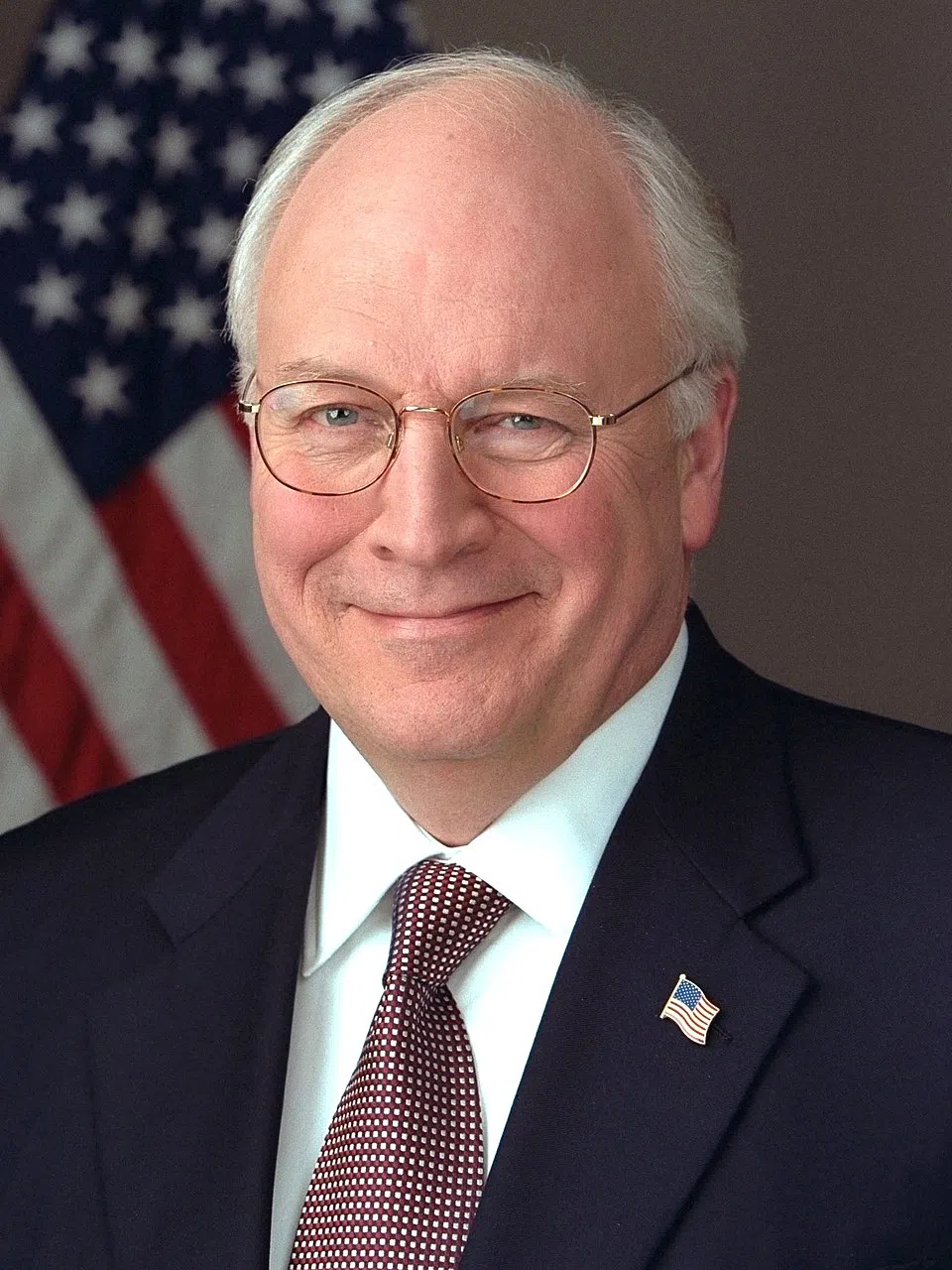STORY COURTESY OF OUR NEWS PARTNER FOX NEWS (FOXNEWS.COM) – Former Vice President Dick Cheney, who served under President George W. Bush during the 9/11 attacks and the wars in Iraq and Afghanistan, has died at 84, his family announced Tuesday.
The former vice president died from complications of pneumonia and cardiac and vascular disease, his family said.
“For decades, Dick Cheney served our nation, including as White House Chief of Staff, Wyoming’s Congressman, Secretary of Defense, and Vice President of the United States,” a family statement reads.
“Dick Cheney was a great and good man who taught his children and grandchildren to love our country, and to live lives of courage, honor, love, kindness and fly-fishing. We are grateful beyond measure for all Dick Cheney did for our country. And we are blessed beyond measure to have loved and been loved by this noble giant of a man.”
He had a long history of cardiac problems, including five heart attacks. He received a heart transplant on March 24, 2012, at a Virginia hospital after nearly 21 months on a waiting list.
Cheney, who served as vice president for two terms under President George W. Bush, was one of the most powerful and controversial men ever to hold that position. He was a driving force behind America’s “war on terror,” including the wars in Iraq and Afghanistan, and also known for his penchant for secrecy. A hero to hawkish conservatives, he was a villain to liberals and Democrats. Hillary Clinton once compared him to Darth Vader.
A son of the American West, Cheney went from the plains of Casper, Wyoming, to a decades-long public career as a Republican congressman, defense secretary, White House chief of staff and one of the most powerful American vice presidents ever.
In the wake of the September 11 terrorist attacks, he never expressed doubt about his support for indefinite detention for alleged terrorist prisoners or even about waterboarding.
“I feel very good about what we did,” he told Fox News in 2008. “If I was faced with those circumstances again, I’d do exactly the same thing.”
In May 2011, after the death of Osama Bin Laden, Cheney called it a “very good day” for the U.S. but warned the country was “still at war” with terrorists and should not “let down our vigilance.”
After the election of Democratic President Barack Obama in 2008, Cheney, still a face of his party, became one of the new president’s most prominent critics, attacking his foreign policy and accusing him of being soft on terrorism. In addition to his decades-long political career, Cheney also worked in the oil industry as chairman and chief executive officer of the Halliburton Company, from 1995 until he returned to politics in 2000.
In 1968, he moved to Washington as a congressional fellow and in 1969 became a staff assistant in the Richard Nixon administration.
From 1975–77, he was chief of staff for Nixon’s successor, Gerald Ford. In 1978 he was elected to the House of Representatives from Wyoming and served six two-year terms, rising to become minority whip. Cheney was popular in Congress, noted for his integrity and civility.
He next became Secretary of Defense under President George H. W. Bush, with the Senate confirming him unanimously, from 1989–93.
After Bush failed to win re-election, Cheney went to the American Enterprise Institute, a conservative think tank, and then to Halliburton.
He was elected vice president in 2000 and 2004 on the ticket with George W. Bush and flourished as one of Bush’s inner circle of advisers on defense and foreign policy.
He also actively promoted expanding the powers of the presidency. In August 2011, he released a memoir, “In My Time.”
He was born on Jan. 30, 1941, in Lincoln, Nebraska, and grew up in Casper, Wyoming, where he captained his high school football team and married his high school sweetheart, Lynne Vincent, in 1964.
He is survived by Lynne Vincent, two daughters, Elizabeth and Mary, and seven grandchildren.









